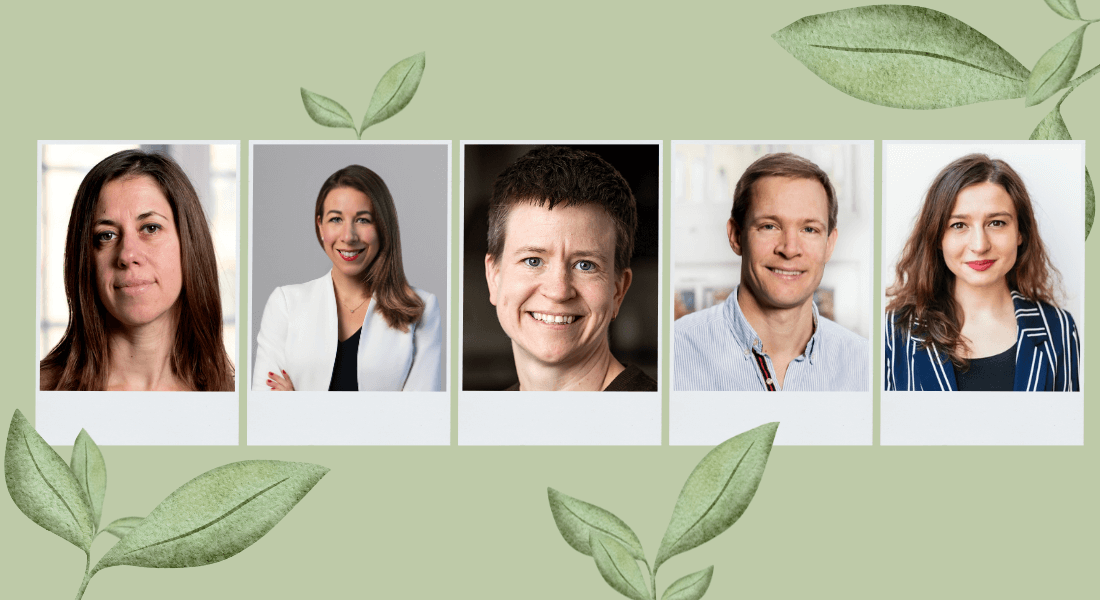Independent Research Fund Denmark supports five social science projects
Employers' discrimination of employees based on political views, consumer behaviour, mental control and flexibility in a digital world, the origins of self-awareness and how best to detect cognitive problems after a stroke. Five research projects are now investigating this with grants from the Independent Research Fund Denmark.

Five research projects at the Faculty of Business and Social Sciences have received grants totalling DKK 15.9 million from Independent Research Fund Denmark to investigate five different aspects of our society: Employers' discrimination of employees based on political views, the impact of consumer behaviour as we transition to a fully renewable energy-powered electricity system by 2030, mental control and flexibility in a digital world, the origins of self-awareness and how best to detect cognitive problems after a stroke. Read more about the individual projects below.
Politics at Work: Uncovering Partisan Discrimination in Hiring
Diana-Roxana Galos, Assistant Professor at the Department of Sociology (DKK 3.2 million)
Do employers discriminate against potential employees because of their political leanings? While a lot of attention has been paid to discrimination based on, for example, applicants' gender or ethnicity, little is known about labour market discrimination based on political affiliation.
If individuals are discriminated against because of their political affiliation, it prevents the most qualified people from being hired and weakens social integration across political divides, explains the project description.
Firstly, the project will identify the subtle signals that employers associate with political affiliation and thus potentially discriminate on this basis when evaluating applicants. Secondly, the project investigates discrimination based on political affiliation in a wide range of occupations through survey and field experiments in Denmark.
Behavioural barriers to electricity demand management
Christina Gravert, Associate Professor at the Department of Economics (DKK 3.1 million)
Denmark faces a significant challenge in transitioning to a fully renewable energy-powered electricity system by 2030. Our primary renewable energy sources, wind and solar, are intermittent in nature, which can make balancing the grid expensive.
Consumers play an active role in balancing the electricity system by adjusting their consumption to the times when production is highest. Peak tariffs and hourly billing are seen as necessary to make consumers flexible.
‘We will investigate what consumers‘ behavioural barriers mean for consumer flexibility - behavioural barriers can be lack of information, inattention and adaptation costs,’ says the project description.
The Cognitive Control and Flexibility Project
Anders Petersen, Associate Professor at the Department of Psychology (DKK 3.2 million)
In our modern, digitalised society, we face a fundamental challenge: how do we balance maintaining a stable focus and concentration while navigating the many demands placed on us?
Meta-control is the key to solving this dilemma. It is our ability to manage and regulate when to be flexible or stable. This meta-control is rarely perfect and we all experience being trapped in a Facebook feed that we can't get out of, or being so distracted that we can't concentrate on reading a book. At the same time, we know that metacontrol can be affected when we are too tired or too excited, i.e. when our so-called arousal is not optimal.
‘The project includes a series of experiments that challenge meta-control in healthy subjects while manipulating their arousal levels and recording their behaviour and brain activity,’ says the project description.
The origins of self-awareness: Exploring the social modulation of interoceptive awareness in human infants
Victoria Southgate, Professor in the Department of Psychology (£3.2m)
Human self-awareness is crucial to our well-being and our ability to understand other people. Young children are not born with this awareness, but research suggests it develops around 18 months of age.
However, it is not known how babies become self-aware. This is not only a question of human consciousness; it is also crucial for understanding disorders of consciousness that occur during development and when informing concerns about self-aware artificial intelligence.
In the project, researchers will test infants at 3, 9 and 18 months of age using both behavioural and neuroimaging methods. The goal is to test new hypotheses about how the social context of development (including physical proximity to caregivers) provides input that the infant's brain can utilise to generate awareness of self-generated signals from the body.
Detecting and predicting post-stroke cognitive impairments
Ro J. Robotham, Assistant Professor at the Department of Psychology (£3.2m)
Approximately 12,000 people in Denmark suffer a stroke, i.e. a hemorrhage or blood clot in the brain, every year. A stroke can lead to various physical and cognitive disabilities, including problems with language, memory, concentration and the ability to keep track of things.
Healthcare professionals need effective tools that can quickly identify cognitive problems in a patient. The new Oxford Cognitive Screen has quickly gained popularity among healthcare professionals as it is easy to use and requires little time to complete. Despite its international adoption, we still know very little about how well it works.
‘The aim of the project is to investigate the tool's effectiveness in detecting cognitive problems and predicting their development over time. The project also aims to provide accurate estimates of the proportion of patients who experience cognitive problems after a stroke in the short and long term,’ says the project description.
Read more about the grants on Independent Research Fund Denmark's website
Contact
Simon Knokgaard Halskov
Press and communication advisor
The Faculty of Social Sciences
Mail: sih@samf.ku.dk
Phone: +45 93 56 53 29
